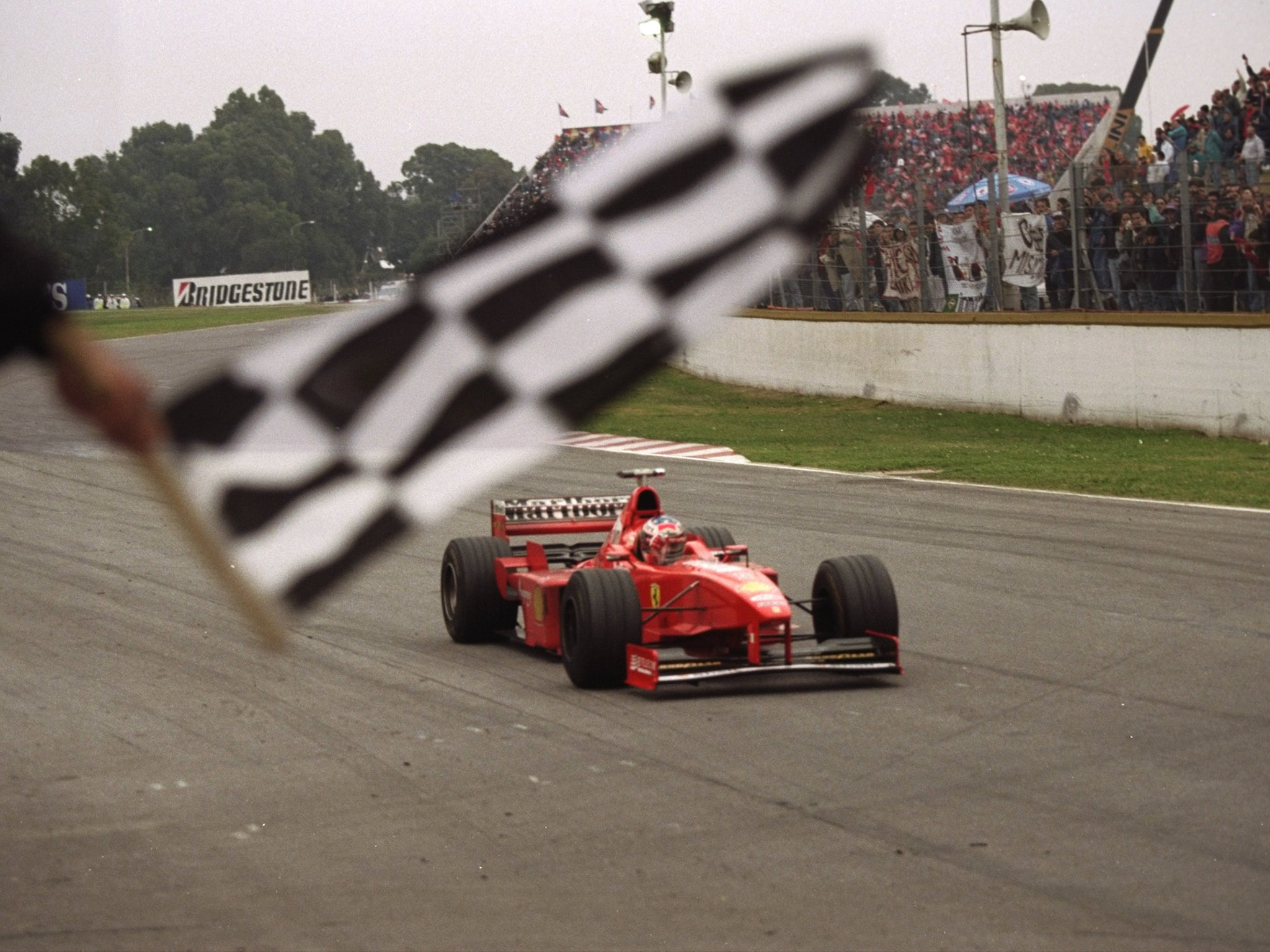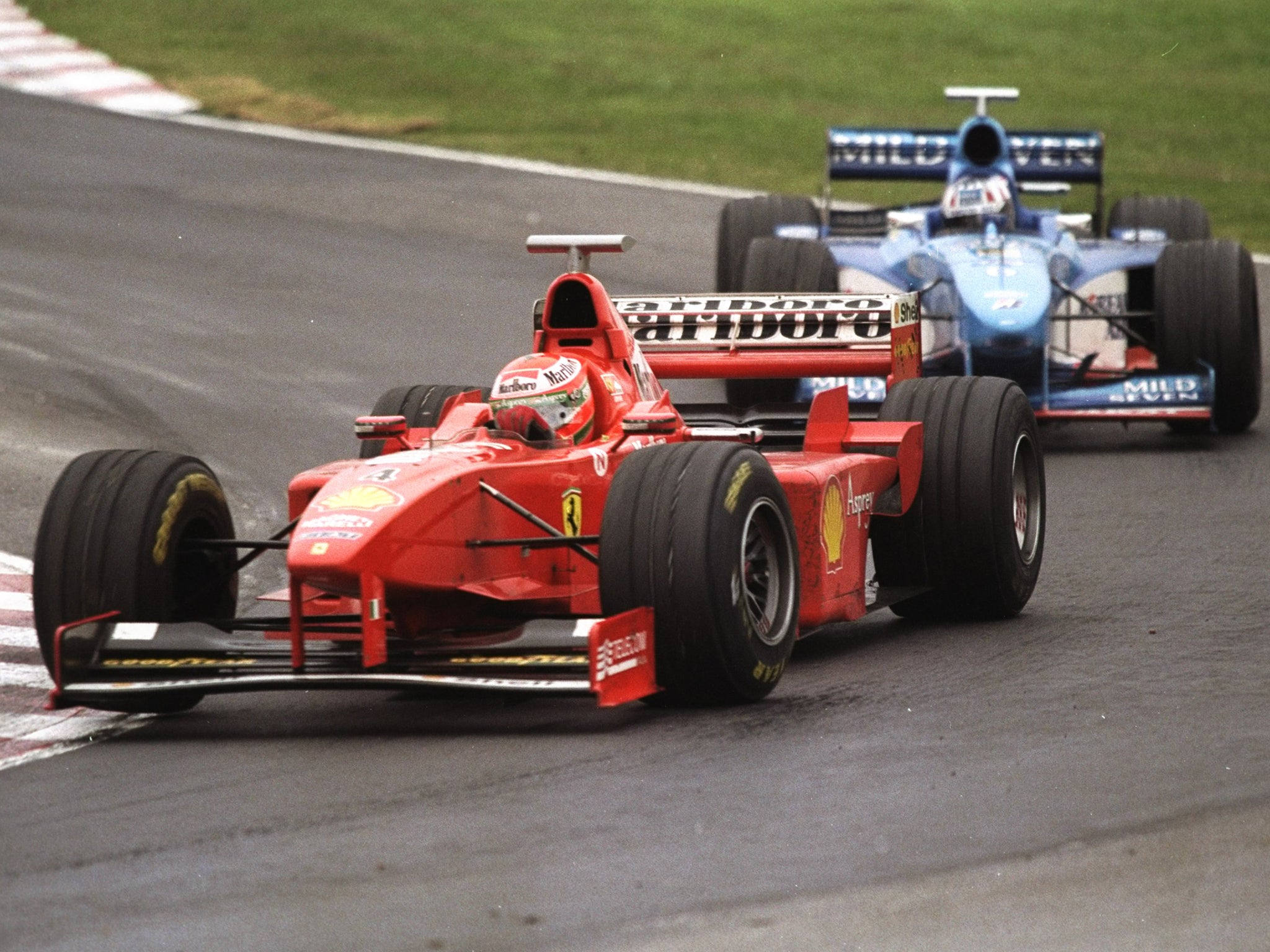F1 in talks to resume Argentinian Grand Prix after 20-year absence after leading promoter backs plans
Exclusive: The Autódromo Juan y Oscar Gálvez in Buenos Aires could host a Grand Prix next season for the first time since 1998 after Arturo Bubinstein revealed talks with Liberty Media

Your support helps us to tell the story
From reproductive rights to climate change to Big Tech, The Independent is on the ground when the story is developing. Whether it's investigating the financials of Elon Musk's pro-Trump PAC or producing our latest documentary, 'The A Word', which shines a light on the American women fighting for reproductive rights, we know how important it is to parse out the facts from the messaging.
At such a critical moment in US history, we need reporters on the ground. Your donation allows us to keep sending journalists to speak to both sides of the story.
The Independent is trusted by Americans across the entire political spectrum. And unlike many other quality news outlets, we choose not to lock Americans out of our reporting and analysis with paywalls. We believe quality journalism should be available to everyone, paid for by those who can afford it.
Your support makes all the difference.One of Argentina’s leading event promoters has revealed that he is in talks with Formula One’s owner Liberty Media about bringing a Grand Prix back to the country in 2019 after a 20-year hiatus.
Argentina was one of the first non-European countries to hold a round of F1 in 1953 and went on to host 20 races at the Autódromo Juan y Oscar Gálvez which is located in a park in the southern part of Buenos Aires.
Financial hurdles put the brakes on the race in 1998 but it has been brought back on the agenda by a recent change of government and the sale of F1 last year to Liberty. It has said it wants to embrace F1’s heritage and expand the calendar beyond the 21 races which will take place this year so it puts Argentina in pole position.
“We are negotiating with Liberty Media to become the promoter of the GP in Argentina,” says Arturo Rubinstein, president of investment firm Blue Capital. It owns Fenix Entertainment, a music and sports event promoter which has organised concerts featuring Justin Bieber and Elton John as well as the Argentinian round of the electric-powered racing series Formula E.
Rubinstein plans to host the race at the Autódromo in Buenos Aires and says that the government has committed to funding £21.5m [$30m] of upgrades required by F1’s governing body the Fédération Internationale de l’Automobile [FIA]. As the work will only take around six months to complete he hopes to join the calendar at the start of next year.
“The government of the city of Buenos Aires has committed to fund the required works in order to get a further upgrade of the circuit according to F1 and FIA´s standards,” says Rubinstein. “The works to repair and improve the circuit will start as soon as we sign the agreement to hold the race in Buenos Aires for a five year term and the estimated amount is in the range of $30m. In an expert’s opinion, the works may be finalised six months after they start.
“Our preference is to have the race held in 2019, at the beginning of the calendar, back to back with Australia. It is worth noting that there are transpolar flights. Also, historically, the F1 races in Argentina were held at the beginning of the calendar. Another alternative is to have it in November, before or after Brazil.”
He adds that the plan has been in development since 2013 when he began discussing it with former Lotus F1 deputy team boss Federico Gastaldi, an Argentine whose family was involved in promoting the race in the 1990s. “In early 2014 we had our first meeting in London with [former F1 boss] Bernie Ecclestone. The political and economic situation in Argentina did not help to make it happen during the following years but now it’s the right time.
“We have been discussing the project with both the national and the city of Buenos Aires governments. The current president of Argentina, Mauricio Macri, has a sport background, having been president of [top Argentinian football club] Boca Juniors for 10 years during the most successful period in its history. It should be borne in mind that he is the former Buenos Aires city mayor and, as such, we have actually been talking with him about this project since the start in late 2013.”
In 2015 Ecclestone told Reuters that the race “can happen. Not will, can.” However, until now it has not come to light that Liberty is in talks about it or that Rubinstein is backing it. He adds that “we already have the backing of the Argentine Automotive Club (ACA) as well as of some of the leading companies who have already anticipated their willingness to sponsor the event.”
In August representatives of the ACA, the city government and the Argentinian Drivers’ Association took F1’s race director Charlie Whiting on an inspection of the track and Rubinstein says he was “impressed”. Although it has not been home to F1 for two decades the track is still used for domestic motorsport including the TC2000 touring car championship and junior series Formula 4.
It is steeped in history as Argentine Juan Manuel Fangio, who is considered to be one of the greatest-ever F1 drivers, won four times in a row there between 1954 and 1957.

Argentina was priced out of F1 by an increasing number of emerging markets which became attracted to the sport. Their governments were prepared to pay top Dollar to host it and promote themselves to its television audience which hit 352 million last year. It has driven up F1’s annual Grand Prix hosting fee to an average of £22.3m ($31.1m) and left only two races in Latin America: Brazil and Mexico.
The latter returned in 2015 and has been home to the highest three-day attendance every year since then with 337,043 fans filling the grandstands in 2017. Argentina is hoping to emulate this success which has fuelled the interest of the country’s president Mauricio Macri who was elected in 2015.
“As Argentina has re-entered the global market, with sound reforms by the new government that took over three years ago, investor interest has surged. This has enhanced many opportunities for global events and networking. As an example, Argentina is hosting the biennial World Trade Organization, the G20 Summit and the International Youth Olympics,” says Rubinstein.

The Mexican Grand Prix is also run by an event promoter rather than a government agency as is the norm in F1. Promoters benefit from economies of scale as they already run major events and can advertise them to race fans.
The most notable difference from Mexico is the lack of current or upcoming Argentine F1 drivers. The last one was Gaston Mazzacane who raced for former champion Alain Prost’s team in 2001. Football remains the country’s most popular past time and Argentina is making a joint bid for the 2030 Football World Cup with Uruguay and Paraguay. So even if its pitch for a Grand Prix skids off track it could still race back onto the global sporting map.
Join our commenting forum
Join thought-provoking conversations, follow other Independent readers and see their replies
Comments